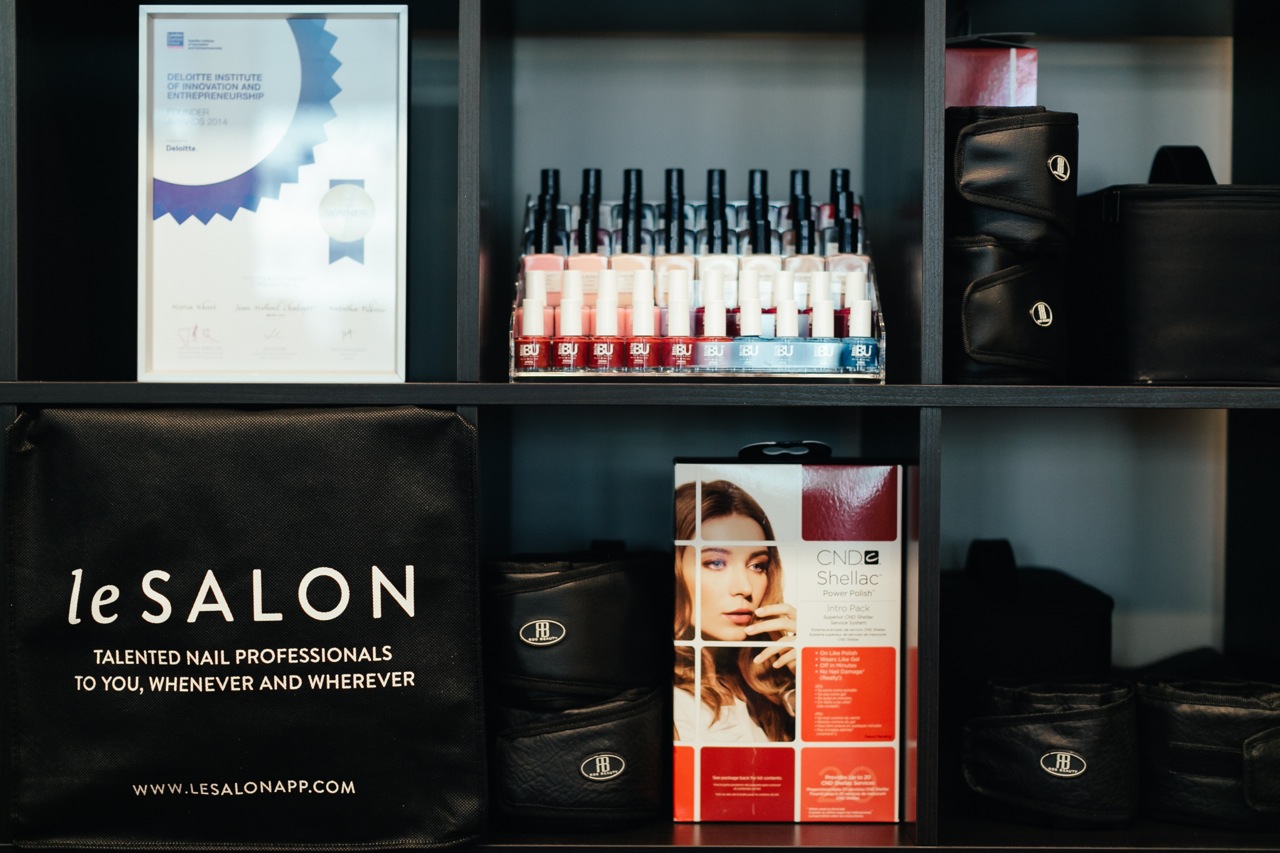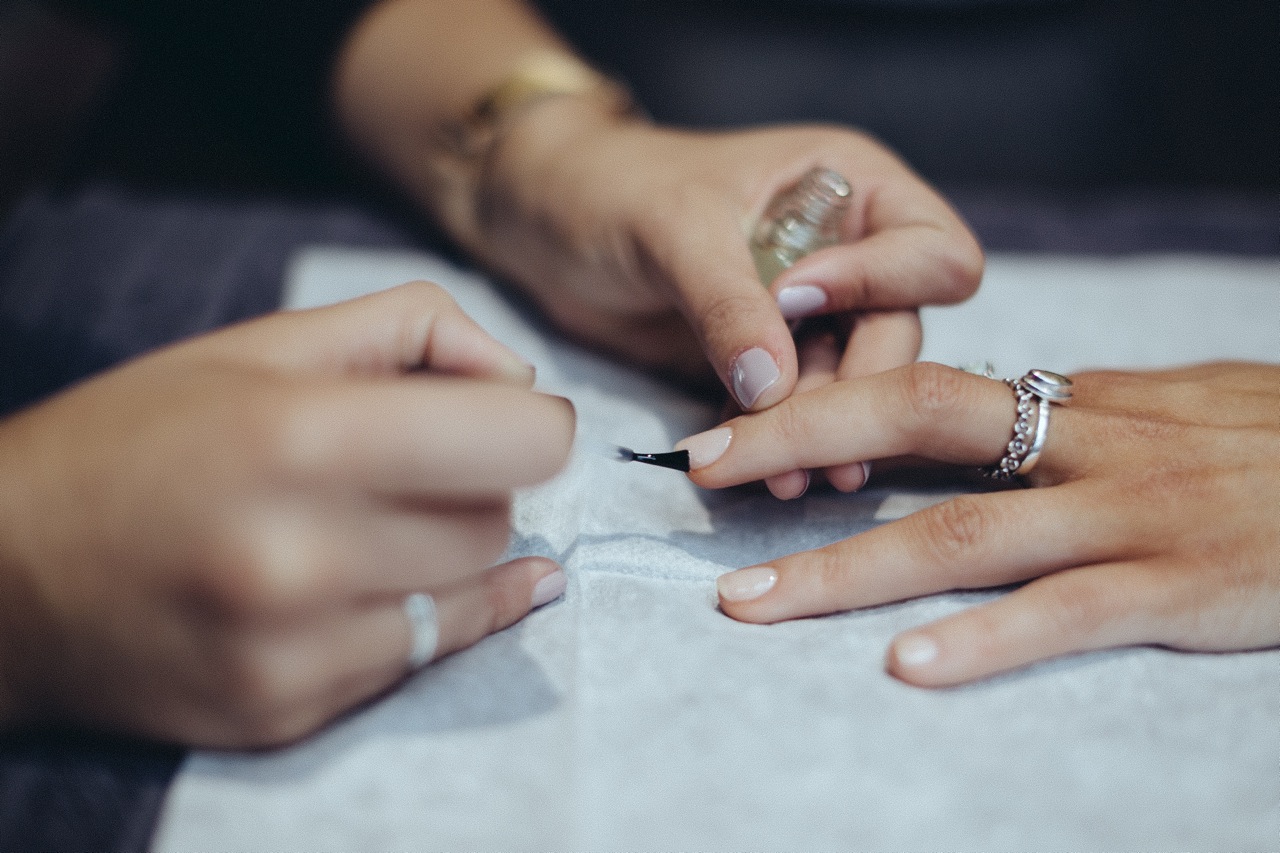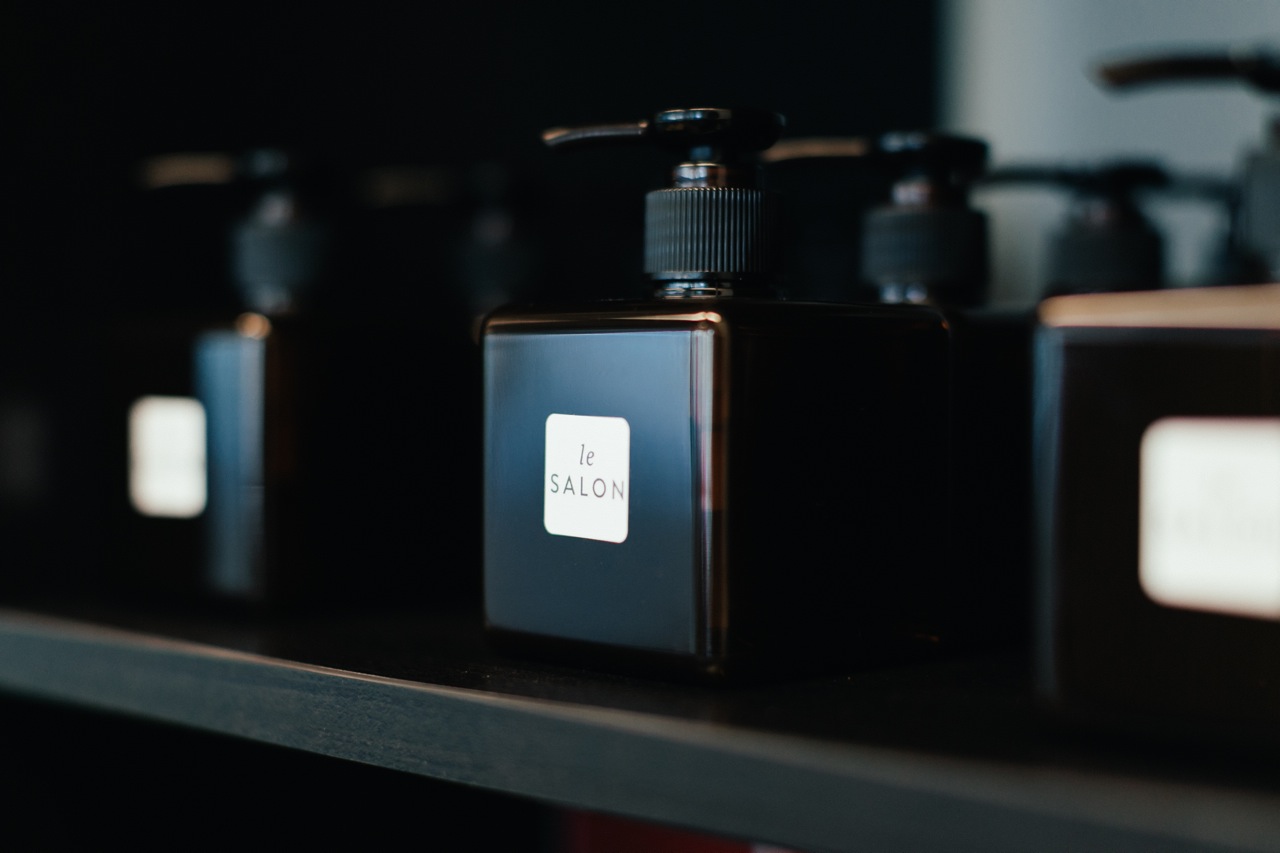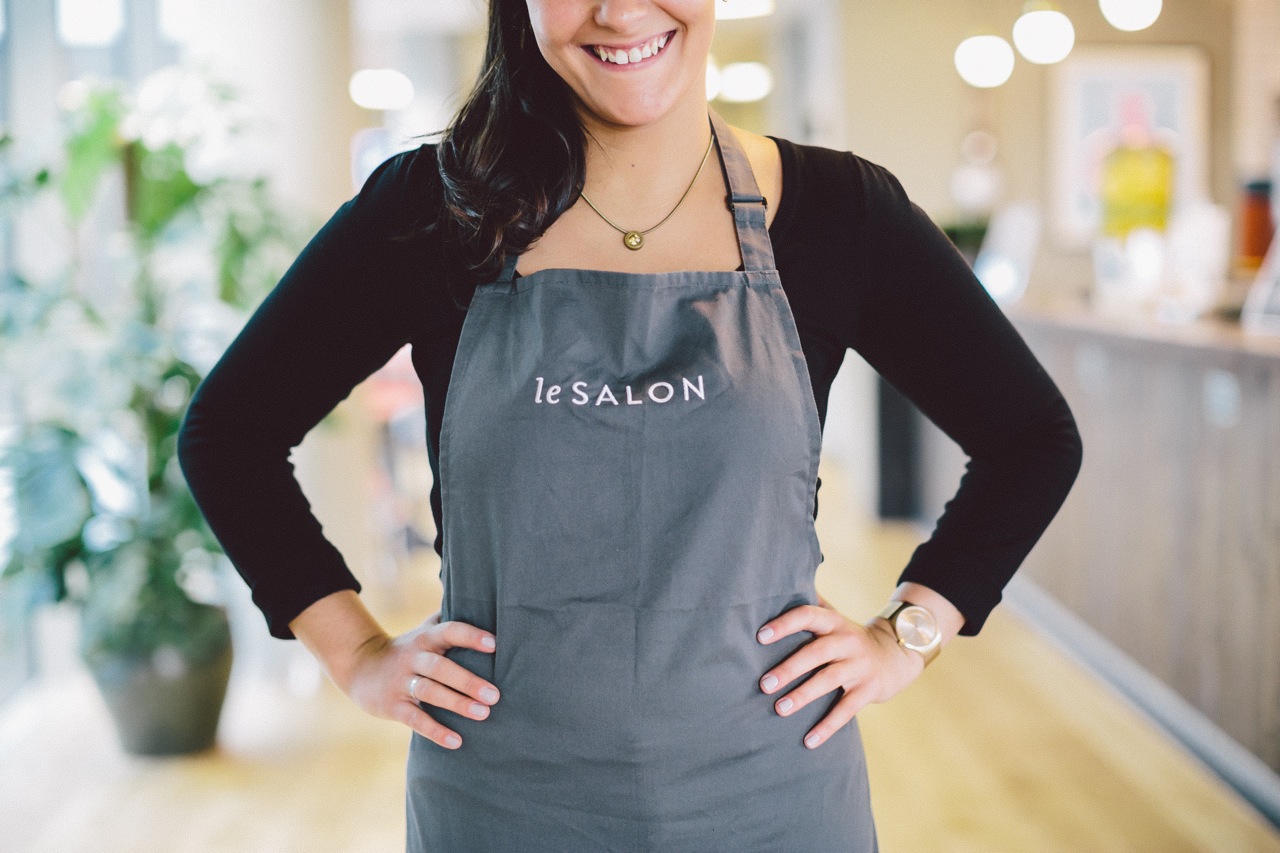Shelves full of sleek, minimalist jars and bottles are the first things you notice at the headquarters of LeSalon. If it feels a bit like a salon, that’s not accidental: the London-based company offers high-end nail services.
But this isn’t where the pampering takes place. Their innovation is that their services are delivered to your door.
Co-founders Jean-Michel Chalayer and Natasha Pilbrow have built out an app that allows customers to enjoy spa services without leaving their home, hotel, or office. They select their service of choice—manicure, pedicure, or both—choose a time, date, and location, and then pay for the appointment through the app (currently available for iOS only, with an Android version coming soon).
The WeWork Moorgate members point out that even a business that’s all about pampering can be a little stressful behind the scenes.
“When people say starting a business is hard, they really mean it,” says Chalayer. “Everyone underestimates how difficult it is before they start.”
His advice to other entrepreneurs? Remember that you’re in it for the long haul.
“I find you’re always working hard to get small things done, and they all fall into place slowly,” he says. “It’s not one particular ‘aha’ moment.”
All the hard work has definitely paid off.
LeSalon has five full-time employees that oversee upwards of 250 appointments each month, and the founders are passionate about supporting their team of professionals.
“We hope to optimize and facilitate LeSalon using tech, but ultimately it’s about relationships and quality,” says Pilbrow.
LeSalon sources its professionals through word-of-mouth recommendations and has a stringent policy in place about hiring, priding itself on bringing in top-notch professionals. Ongoing training sessions ensure their team is up to speed and that they’re constantly developing their craft.
“Until now, there hasn’t been a real way to progress in this career or to build careers at their own pace,” Pilbrow explains. “Professionals work long shifts and only make minimum wage. How can you expect them to feel passionate and motivated about what they do? We’re hoping to change that—to help create a career path for them.”
A film lawyer-turned-entrepreneur and mother of two young children, Pilbrow’s passion for helping women work flexibly stems from her own experience balancing entrepreneurship and parenthood.
“I’m always looking for that harmony,” she explains. “Some weeks, I feel that I’ve got it under control, and other weeks not.”
Chalayer, a tech enthusiast and former strategy consultant, notes the weight that’s put on the shoulders of entrepreneurs.
“It’s all on you—it’s your own determination that makes things happen,” he says. “You have to put pressure on yourself because no one else is doing it. As the founders, you’re the ones who are going to take this business forward.”
The pair intentionally started small, offering only a narrow set of services in certain areas of London. Though they’d love to expand to other parts of London, and eventually Europe, they don’t want to rush things. Earning customers’ trust up front is paramount. “If you get it right with one service, you can expand from there,” they explain.
How does LeSalon know it’s on the right track? For Pilbrow, it’s knowing professionals are making decent money and have a great sense of pride in working with LeSalon.
“Plus, when we hear busy women saying ‘Oh my gosh, where’ve you been?’, that is validating.”
Photo credit: Lauren Kallen








